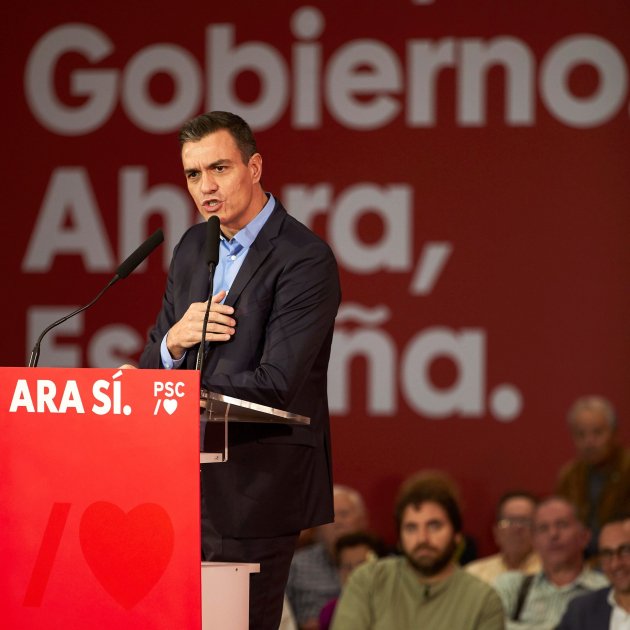As he announced earlier this morning in a radio interview, Spain's acting prime minister, Pedro Sánchez, today brought an executive order to his cabinet to fight against the Catalan "digital republic" and ensure "there is no independence offline or online". After "small adjustments", it was approved by his cabinet as an urgent measure, the day before campaigning starts for the 10th November general election.
Sánchez said it was to avoid "spurious use" of data, whilst his deputy, Carmen Calvo, in a press conference after the cabinet meeting, said it was for "security" reasons. The order, Sánchez said, will require all levels of administration in Spain to use web servers located in the EU, not in "digital paradises". Similarly, it will affect Identicat, the "sovereign digital identity" project launched in September by the Catalan government as a voluntary register of Catalan citizens. The government reportedly wants the DNI scheme (National Identity Document) to be the only ID tool in Spain.
Calvo said it is "normal" for Sánchez to have been the one to bring the proposal to cabinet, nothing exceptional and that it came so close to the start of the election campaign for "security" reasons. She said "there are already situations" which "concern" the government and as such they "have to react as soon as possible". The deputy prime minister added that they have been working on the measure for months, even if they have ended up passing it today as an urgent measure.
When it comes to the question of servers being located outside the EU, Calvo said that "we have to know where information is coming from, who is handling it and why". The decree will be published in BOE, the Official State Gazette, next Tuesday.
The digital republic
Catalan digital policy and public administration minister Jordi Puigneró says his "digital republic" project aims to empower the public, lead to a united territory with intelligent infrastructure and cities, help create an open and efficient administration, increase cybersecurity and boost innovation as a motor of the economy.
Websites outside the EU
After today's announcement, internet users were quick to look into who might have their websites hosted, in whole or in part, outside the EU, and they found at least two: Spain's interior ministry and Pedro Sánchez himself. The IP location for both sites is listed in the USA (see links above), although the search notes that "the registry for this domain name does not publish ownership whois records in the standard format" and so the report "represents the most likely status of the domain".
